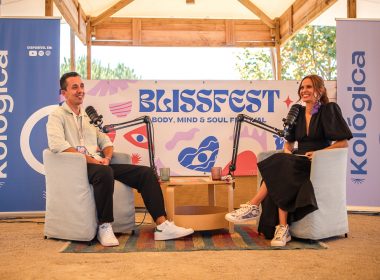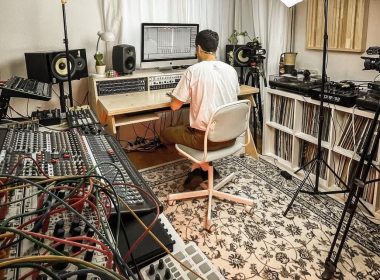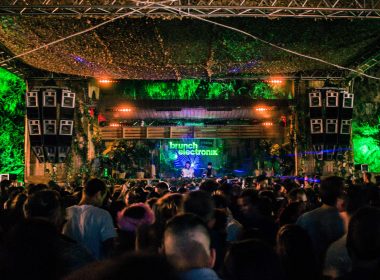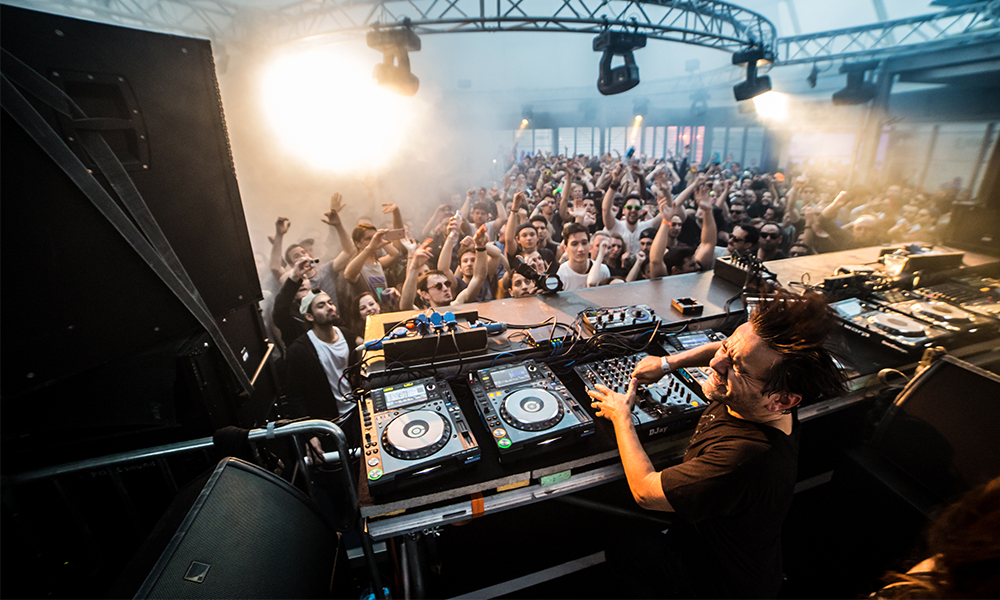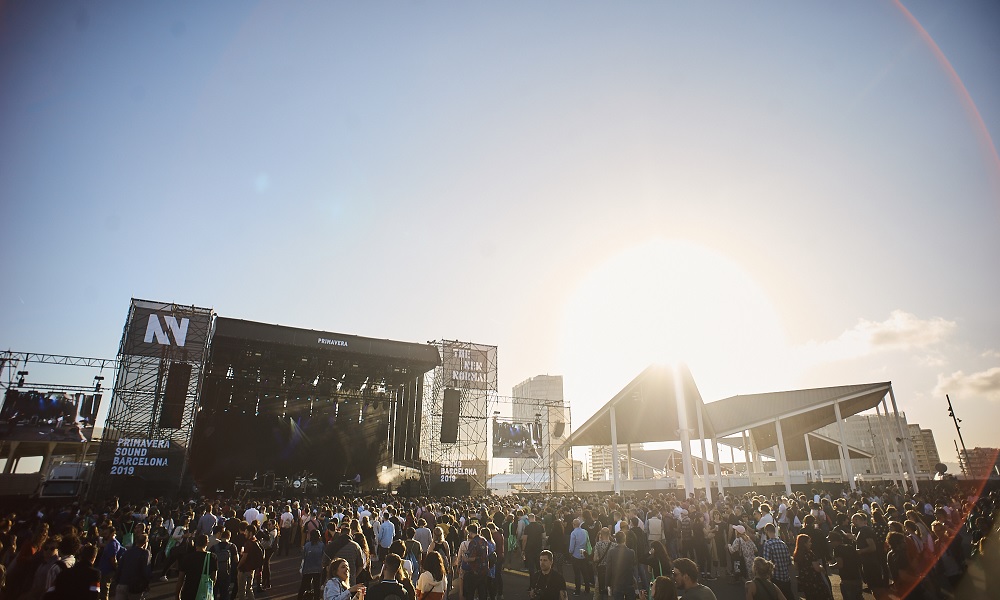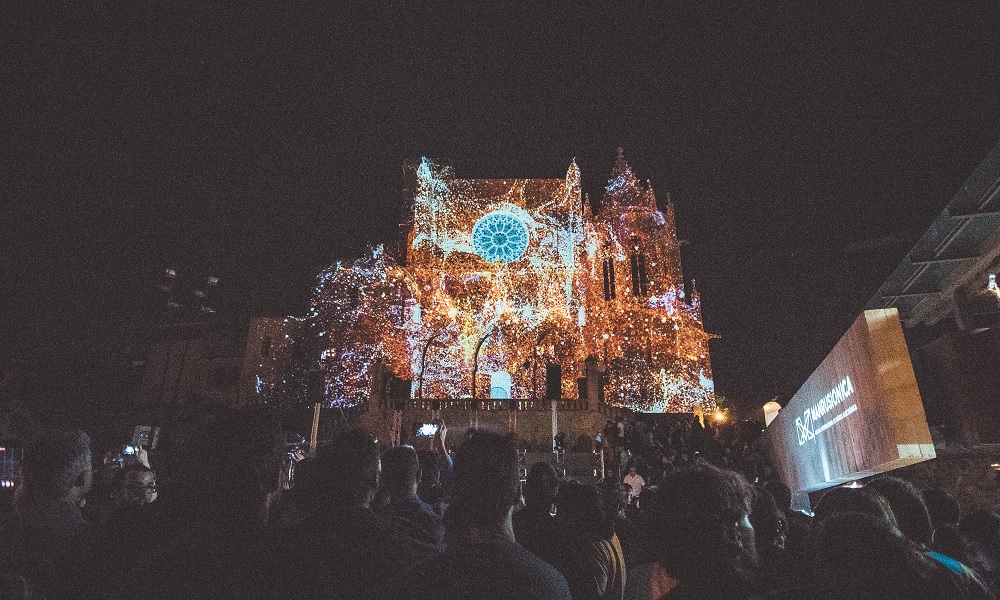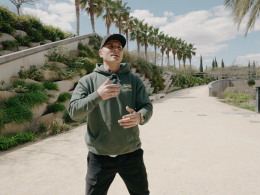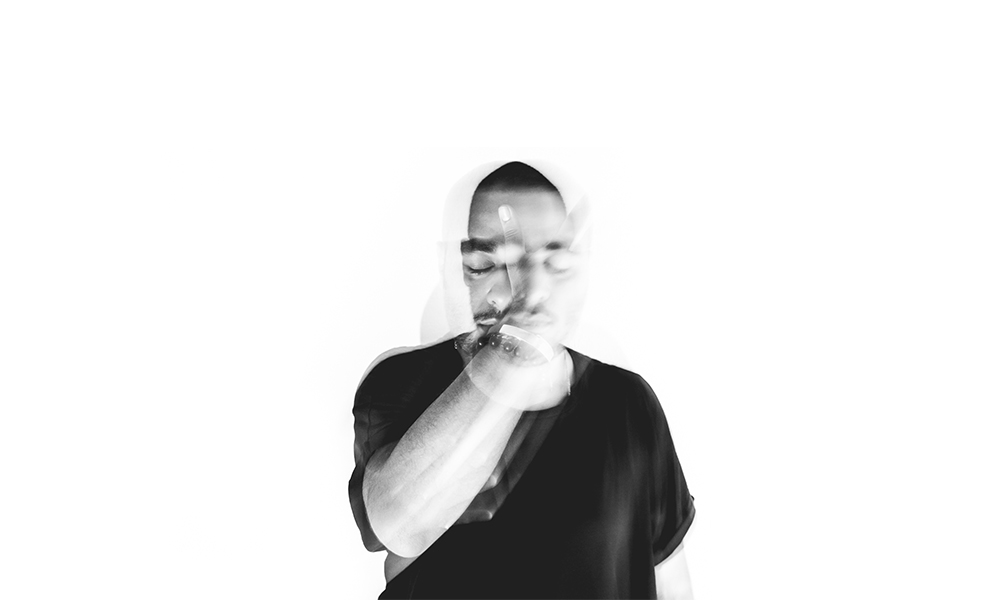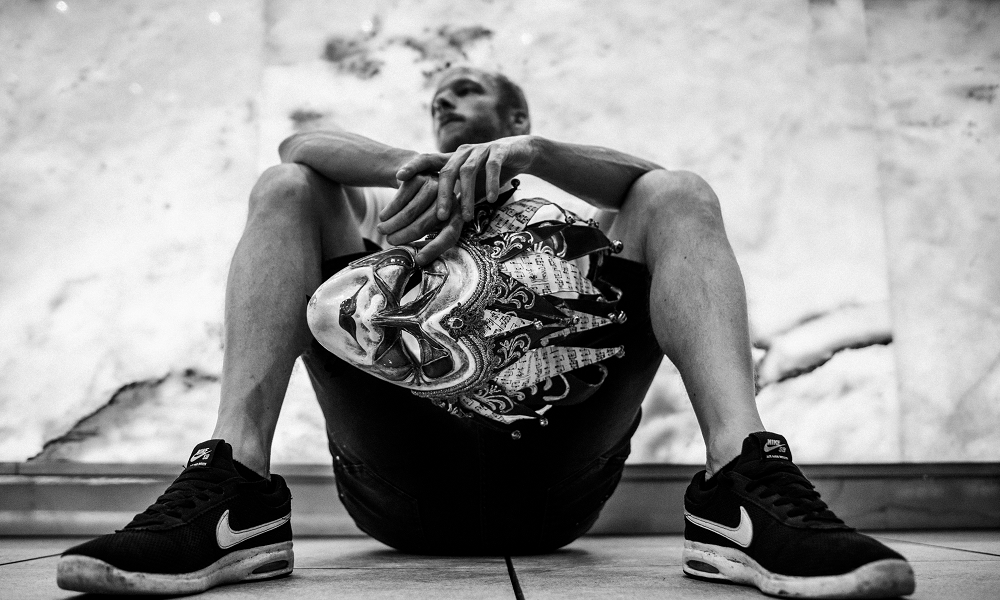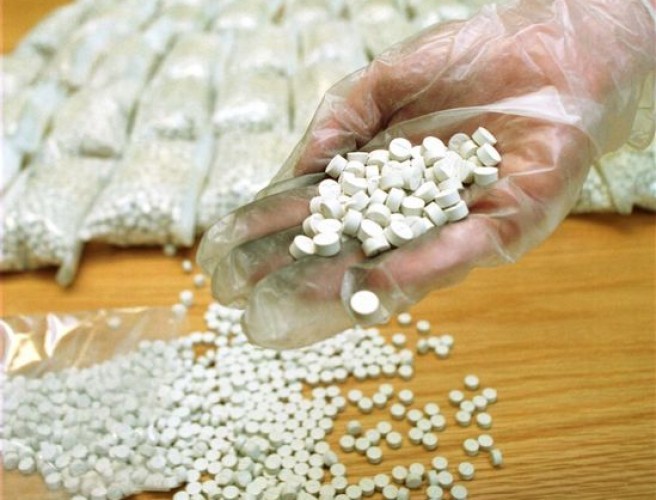Elephant Studio was born in 2012 in Tuscany from an idea of Thomas Pizzinga – current Creative Director of the project. After having worked for big organizations such as Time Warp, Sonus Festival, Oasis Festival, Love Family Park and having collaborated with artists such as Joseph Capriati, Chris Liebing, Sven Väth e Dub FX, Elephant Studio has gained respect and esteem in the electronic music industry, becoming one of the most important and renowned names when it comes to trailers, after movies and documentaries related to the world of clubbing.
In between one work and the other, Thomas kindly dedicated us some of his time and we managed to have a nice chat, discovering lots of interesting facts regarding Elephant Studio and how media work in a constantly evolving industry.
Let’s start from the beginning. What is Elephant Studio?
A collective of creatives who have decided to work together without constraints. Everyone is free to work in other situations and other contexts, according to their needs. The project is based in Italy, more precisely in Tuscany; it started from an idea I had and now it has become a group of 11 people, including photographers and video makers. Using more current terms, it could be defined as a “creative co-working project”, composed of freelances happy to work under the same name and who believe in the strength of Elephant Studio as a brand.
You must love elephants! Why this name?
Ahaha! I love elephants, this is for sure and now I could say it’s almost an obsession. Actually, everything comes from my ears; when I was a kid sometimes my friends would tease me for the shape they have and they would call me “Dumbo”. When I had to choose the name, I preferred being auto-ironical and chose “Elephant Studio”.
Who are the people who work for Elephant Studio?
Madlene Sabin, Umberto Santos and I take care of the video production, with the help of Luca Cingolani and Roberto Ricotta on Milan. Since a year also Cristina Principe joined the team and we are happy to see clear improvements. Moreover, recently we started collaborating also with the Florentin director David Barbieri. The photographic side is followed by Antonio Corallo, Daniele Rivieri, Andrea Raffani, Claudio Caprai and Stefano Carmignani. For some works, we collaborate with other freelance artists, for videos as well as photos.
In the last 3 years I have been collaborating with an Estonian production company, Vita Pictura, with whom we collaborate for the Weekend Festival – Estonia and Finland – and with whom we produce various music videos throughout the year.
As an agency, we also take care of Social Media and Web Design for some brands, with the help of collaborators in Tuscany and Lombardy.
What has changed since Elephant’s first steps to now?
Every year we achieve a bigger goal and insert new collaborators to the project, which shows how much people value it. Over the years, we have also managed to build solid friendship relationships and we trust each other very much. We are working to create a more structured and organised network, without pushing or rushing things. We prefer taking one step at a time, always putting in the first place the quality of our work and the happiness of our clients; of course, we must also consider all the possible problems, the solutions and carefully organize the budget.
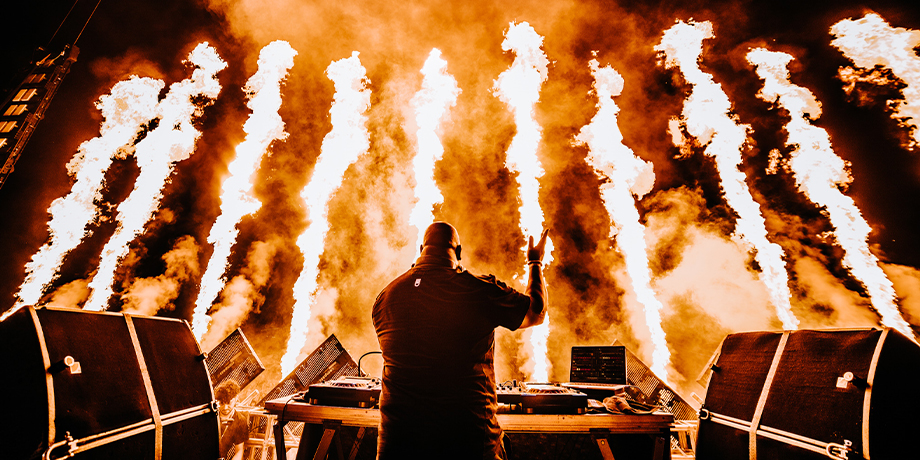
Which advice would you give to someone who would like to work in Elephant Studio?
We are always looking for new collaborators with a passion for music and events, who would like to grow with our help. We must never believe that we “reached the top” because in our industry humility and awareness of our own limits are the basis of success.
You spoke about passion for music. You are also a DJ, you like electronic music and more generally nightlife. Has this become a natural environment for you?
Eheh good question! I’m comfortable with it, 60% of our customers come from nightlife. I’ve met a lot of people and I’ve also managed to find friends in a lot of them. Every time we go to an event, for work or just for pleasure, it’s always nice being able to chat with people from all over the world. That’s why nightlife is awesome. The first example that comes to mind is Time Warp, where we now feel “at home” and where our German family always welcomes us. This massive network of friendships has brought a lot of job opportunities, as well as giving us even more from a human point of view. I really think this is one of the few environments that allow such a thing, it is known that music connects people.
Was it always clear for you the desire of working in the “visual” part of the night? Or did it happen randomly?
Randomly no, I wouldn’t say so. My passion for music has always guided my choices since I was a teenager: everything started with punk, hardcore, metal and then moved on to drum and bass. From rave parties to club culture. When I was 18 I worked in public relations at Kama Kama and that’s where I started taking my first pictures. I also had Tinì Soundgarden a few kilometres away and thanks to Valerino Gronchi and Cinzia Guidi, I started working as a photographer during the summer season. Here I had the pleasure of meeting Leonardo Brogi, who introduced me to many influential people in the industry: DJs, managers and agents, with whom we continue to work today. My greatest luck was to be one of the first event videomakers on Florence, and it is thanks to the collaboration with Daniele Ferrazzano of Decibel Eventi and Marco Rontini that I became part of the Florentine night.
You are currently working with some of the biggest techno events in the world. Was that always your goal? Do you feel you have “reached the top”?
Yes, that has always been our goal. Festivals, unlike clubs, have many more facets that allow us to create more interesting storytellings; we really enjoy creating new concepts for our productions. Do we feel we have reached the top? Absolutely not! I am an extremely self-critical person; my team and I always look for new inspirations. I think you should never think you “reached the top”, the risk is that you get to a point where you stop improving or evolving. This is one of the reasons why I’m glad that the team of Elephant Studio is composed of people who are always looking for professional growth and constant improvement.
What is it like to see the best DJs in the world through a lens? Is it very different from seeing them as simple clubbers?
They’re definitely smaller than in real life! Ahaha! In general, with most of the DJs, we work at least 10 times a year and by now we can predict their moves. Only by looking at them do we know if they want to collaborate or not. You create a sort of bond, even if it’s only for the few hours you’re working “together”. It’s quite common to find yourself in situations where working becomes complicated: narrow spaces often very crowded and low-quality lighting. Moreover, it can happen that a DJ decides he/she doesn’t want to have you around, without an obvious reason. In these cases, we almost envy those who live the night as clubbers!
DJs love having new material all the time. Did you become friends with some of them?
I have an excellent relationship of mutual trust with Chris Liebing and Sven Väth, on several occasions, I collaborated with both of them. The time to talk is always short, unfortunately. It’s easier to become friends with their crews.
In all these years, you’ve certainly lived a lot of funny moments. Tell us one.
The first one that comes to mind was during our first SONUS festival in 2015. There were 4 of us and we had 2 sets of keys to the apartment. One of the two was with Luca, who was working on the boat party; the other one was with Antonio, who was working on the boat party too. We had to go back to the house at all costs to get the batteries we had left under recharge; to do so we had to pass through the bathroom window on the 2nd floor, climbing on the roof of my car. It was a very funny scene, especially for those who were passing by at that moment.
Which was the best working day? And the worst?
The best day was undoubtedly the 2016 Time Warp. The media team was almost entirely composed by Elephant Studio members and I can’t deny this was an incredible satisfaction. Amongst the days to forget instead, I surely remember the one in which one of the 4 hard disks with the material of a festival decided to stop working, making us lose part of the filming. Luckily we managed to get away with the material we had.
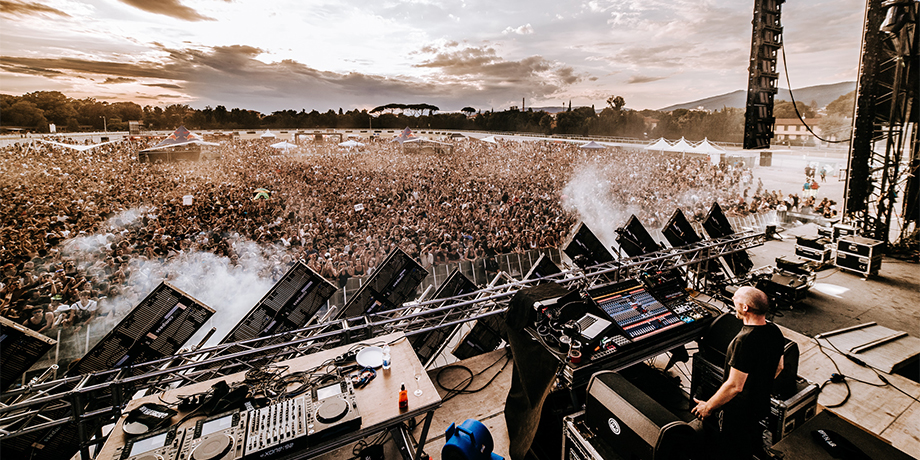
The next event where you would like to work?
We’d like to work on a project in Burning Man. At the moment we would love to document situations in which there’s much more than “only” the music, but also art, installations and uncommon situations.
Nowadays taking pictures and videos has become much more simple thanks to smartphones. Many people seem to take good pictures and videos too easily. What do you think about this?
We are the first ones who use smartphones for some works. We can and we should take advantage of new technologies, adapting them in the best way possible to what we are doing. It’s true, it’s easy and everyone can do it, but there must be culture and taste in order to obtain something interesting.
Which advice would you give to a young person who would like to start working as a photographer or videomaker in the nightlife environment?
Observe a lot. Nowadays in a group of 20 friends, at least 1 is a photographer. To become good you need to observe who is good for real, trying to take the best but without copying, rather, adapting it to your own style. If you don’t have money for a school, you can start studying the numerous videos you can find online on YouTube. In nightlife, where everything seems fun and beautiful, taking photos or videos isn’t easy as it may seem. It’s very difficult to find well-done material, and this is the demonstration of how difficult it can be to work in certain conditions and situations.
A wish for Elephant Studio?
Of course to do always better. I wish the best to all my team for the upcoming summer season; there are also some big news for the next winter and I can’t wait to announce them.
(Cover Image © Andrea Raffani)




